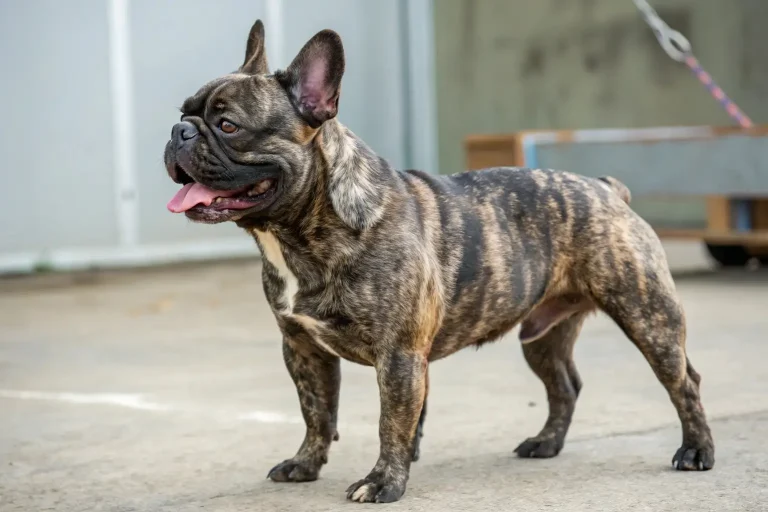Black French Bulldog Secrets: 7 Things Owners Must Know
Are you unlocking all the potential of your black French Bulldog? Discover exclusive tips and insights for this unique color variation of one of America’s most beloved breeds. These compact companions with their distinctive jet-black coats require special knowledge for optimal care. From unique health considerations to behavioral traits, this comprehensive guide reveals the seven essential secrets every black French Bulldog owner should know to ensure their four-legged friend thrives.
Introduction
The black French Bulldog stands out as one of the most striking color variations of this increasingly popular breed. With their compact, muscular bodies and distinctive bat-like ears, these ebony companions command attention wherever they go. The solid black coat, while less common than brindle or fawn colorations, creates a sleek, sophisticated appearance that many dog lovers find irresistible.
Owning a black French Bulldog comes with specific responsibilities and considerations that differ from other Frenchie colors or dog breeds in general. Their distinctive genetics, potential health issues, and care requirements make it crucial for owners to educate themselves beyond basic dog care.
Did you know that the black coat in French Bulldogs comes from a specific gene that affects not just their appearance but potentially their health as well? This fascinating connection between genetics and wellbeing is just one of the many secrets we’ll explore in this comprehensive guide to black French Bulldog ownership.
1. The Genetics Behind the Black Coat
The Science of Color
The striking black coat of a French Bulldog results from specific genetic factors. Black French Bulldogs possess two copies of the dominant black gene (KB), which overrides other coat color genes. Unlike brindle or fawn Frenchies, whose coats show patterns or variations, true black French Bulldogs display a solid, uninterrupted ebony coat.
Rare But Recognized
While the American Kennel Club recognizes black as a standard French Bulldog color, truly solid black Frenchies are relatively uncommon compared to their brindle, fawn, or pied counterparts. This rarity often contributes to higher prices from reputable breeders, with black French Bulldogs frequently commanding premium prices in the $3,000-$7,000 range.
Health Implications
The genetics responsible for the black coat can sometimes carry additional health considerations. Some research suggests connections between coat color genetics and certain health predispositions, making it essential for potential owners to work with ethical breeders who conduct appropriate health testing rather than focusing solely on obtaining a specific color.
2. Special Health Considerations
Temperature Sensitivity
Black French Bulldogs absorb more heat due to their dark coats, making them particularly susceptible to overheating. Owners must take extra precautions during warm weather:
- Limit outdoor activity during peak sun hours
- Ensure constant access to shade and fresh water
- Consider cooling vests for summer walks
- Never leave them in cars, even with windows cracked
Skin Issues
The black coat can sometimes mask skin problems that might be more visible on lighter-colored dogs. Regular skin checks should become part of your care routine, focusing on:
- Checking for redness or irritation in skin folds
- Looking for signs of allergic reactions
- Monitoring for dry patches or excessive flaking
- Watching for hot spots or areas of inflammation
Common French Bulldog Health Concerns
Beyond color-specific issues, black French Bulldogs share health predispositions with the broader breed, including:
- Brachycephalic Obstructive Airway Syndrome (BOAS)
- Intervertebral disc disease
- Hip dysplasia
- Eye problems including cherry eye and cataracts
- Allergies and skin fold dermatitis
Establishing a relationship with a veterinarian familiar with brachycephalic breeds can help manage these potential health challenges proactively.
3. Nutrition Requirements and Feeding Tips
Caloric Needs
Black French Bulldogs have specific nutritional requirements based on their compact, muscular build and moderate energy levels. Most adult black Frenchies require approximately 25-30 calories per pound of body weight daily, though this varies based on activity level and metabolism. For a typical 25-pound black French Bulldog, this translates to 625-750 calories daily, divided between two meals.
Recommended Diet Components
A balanced diet for a black French Bulldog should include:
- High-quality protein (25-30% of diet) to maintain muscle mass
- Moderate fat content (12-15%) for energy and coat health
- Limited carbohydrates to prevent weight gain
- Omega-3 fatty acids to support skin health beneath that beautiful black coat
- Antioxidants to combat oxidative stress
Feeding Challenges
Many black French Bulldogs face feeding challenges related to their facial structure:
- Use elevated food bowls to reduce strain on the neck and improve airway positioning
- Consider specially designed slow-feeder bowls to prevent gulping and reduce gas
- Monitor for food allergies, which may manifest as itching, paw licking, or ear infections
- Establish consistent feeding times to support digestive regularity
Weight Management
Maintaining ideal weight is crucial for black French Bulldogs, as excess pounds can exacerbate breathing difficulties and joint issues. Regular body condition assessments, where you should be able to feel but not see the ribs, help ensure your Frenchie stays at a healthy weight.
4. Grooming and Coat Care
Shedding Patterns
Despite their short coats, black French Bulldogs are moderate shedders. Their dark hair is particularly visible on light-colored furniture and clothing. Seasonal shedding typically increases during spring and fall, requiring more frequent grooming during these transition periods.
Bath Time Considerations
When bathing your black French Bulldog:
- Use dog-specific shampoos formulated for dark coats to prevent fading
- Limit baths to once every 4-6 weeks to preserve natural oils
- Pay special attention to cleaning skin folds and wrinkles
- Thoroughly dry all skin folds to prevent moisture-related infections
Regular Maintenance
A comprehensive grooming routine should include:
- Weekly brushing with a soft-bristle brush or grooming mitt
- Daily wiping of facial wrinkles with pet-safe wipes or a damp cloth
- Regular nail trimming (typically every 3-4 weeks)
- Routine ear cleaning with veterinarian-approved solutions
- Daily dental care with dog-specific toothpaste
Maintaining Coat Luster
To keep your black French Bulldog’s coat looking its best:
- Consider supplements containing omega fatty acids
- Use conditioning products specifically formulated for dark coats
- Provide a balanced diet rich in quality proteins
- Protect from excessive sun exposure which can cause fading
5. Training and Behavioral Traits

Personality Profile
Black French Bulldogs typically exhibit the classic Frenchie temperament—affectionate, playful, and sociable. However, some owners report subtle temperament variations among different coat colors, with black Frenchies sometimes showing slightly more confidence and independence than their lighter-colored counterparts.
Training Approaches
Effective training strategies for black French Bulldogs include:
- Positive reinforcement techniques using high-value treats and praise
- Short, engaging training sessions (10-15 minutes) to accommodate their moderate attention spans
- Consistency in commands and expectations across all family members
- Early socialization with various people, pets, and environments
- Patient, persistent approaches that respect their occasionally stubborn nature
Exercise Requirements
Despite their stocky build, black French Bulldogs need appropriate exercise to maintain health and manage behavior:
- 20-30 minutes of daily low-impact activity
- Multiple short walks rather than single long outings
- Indoor play sessions during extreme weather conditions
- Mental stimulation through puzzle toys and training games
- Supervised play that avoids excessive jumping or rough activity
Socialization Needs
Black French Bulldogs thrive with proper socialization, which helps prevent potential behavioral issues:
- Introduce to different people, animals, and environments during the critical socialization window (7-16 weeks)
- Attend puppy classes or organized socialization events
- Gradually expose to various sounds, surfaces, and situations
- Monitor for signs of stress and keep experiences positive
6. Living Environment Adaptations
Temperature Control
Creating an appropriate living environment for your black French Bulldog requires special attention to temperature:
- Maintain indoor temperatures between 68-75°F (20-24°C)
- Install air conditioning for hot climate regions
- Provide cooling mats during summer months
- Create shaded areas in outdoor spaces
- Consider heating pads for older black Frenchies in cold weather
Space Requirements
Despite their small stature, black French Bulldogs need thoughtfully arranged living spaces:
- Comfortable resting areas away from drafts
- Easy access to water stations throughout the home
- Minimal stairs or ramps for accessing furniture
- Secure, fenced outdoor areas for safe exploration
- Non-slip flooring to prevent injuries
Urban vs. Suburban Living
Black French Bulldogs adapt well to various living situations with appropriate accommodations:
Urban Living
- Schedule regular bathroom breaks (every 4-6 hours)
- Create indoor play spaces for rainy days
- Identify dog-friendly parks and establishments
- Consider pet relief areas for apartment dwellers
Suburban Living
- Secure fencing without gaps for escape
- Shaded outdoor lounging areas
- Protection from wildlife encounters
- Swimming pool safety measures (most Frenchies cannot swim well)
Travel Considerations
When traveling with your black French Bulldog:
- Use well-ventilated carriers for car travel
- Avoid air travel in cargo areas due to temperature and breathing concerns
- Book pet-friendly accommodations in advance
- Maintain feeding and medication schedules despite time zone changes
7. Socialization and Compatibility
Family Integration
Black French Bulldogs typically excel as family companions with proper introduction:
- Supervise initial interactions with children
- Teach children appropriate handling techniques
- Create positive associations through treats and gentle play
- Ensure the dog has a quiet retreat space when needed
- Maintain consistent rules and boundaries
Multi-Pet Households
When introducing a black French Bulldog to other pets:
- Use neutral territory for initial meetings
- Keep all animals on leash during early introductions
- Watch body language for signs of stress or aggression
- Provide separate feeding areas to prevent resource guarding
- Gradually increase supervised interaction time
Social Temperament
Most black French Bulldogs display these social characteristics:
- Moderate to high sociability with familiar people
- Affectionate behavior with family members
- Playful interactions with compatible dogs
- Occasional stubborn streaks requiring patient handling
- Moderate territorial instincts that can be managed with training
Common Misunderstandings
Potential misconceptions about black French Bulldogs include:
- Assuming their dark appearance makes them more aggressive (false)
- Believing they require less grooming due to coat color (false)
- Expecting them to have identical temperaments to other Frenchie colors (varies)
- Thinking they’re suitable for outdoor living (dangerous due to temperature sensitivity)
Conclusion
Owning a black French Bulldog offers a uniquely rewarding experience filled with affection, companionship, and those signature Frenchie antics that capture hearts worldwide. Their distinctive ebony coats may require special consideration, but the extra effort is well worth the joy these charismatic companions bring to your life.
The seven secrets we’ve explored—from understanding their genetics to creating ideal living environments—provide the foundation for exceptional care. By addressing their specific needs related to health, nutrition, grooming, training, and socialization, you’ll help your black French Bulldog thrive.
Remember that each black French Bulldog has an individual personality beyond the breed and color stereotypes. Take time to discover your dog’s unique preferences and quirks, adapting your care approach accordingly. By combining the specialized knowledge from this guide with attention to your dog’s individual needs, you’ll develop the deep, rewarding bond that makes French Bulldog ownership so special.
Frequently Asked Questions
Are black French Bulldogs rare?
While the American Kennel Club recognizes black as a standard French Bulldog color, solid black Frenchies are relatively uncommon compared to brindle or fawn varieties. Their relative scarcity often makes them more expensive, with prices ranging from $3,000-$7,000 from reputable breeders.
Do black French Bulldogs have different temperaments than other colored Frenchies?
Most temperament traits are consistent across all French Bulldogs regardless of color, but some owners report subtle differences, with black Frenchies occasionally showing slightly more confidence and independence. However, individual personality varies more significantly than any color-based tendencies.
How can I tell if a black French Bulldog puppy will stay completely black?
True black French Bulldogs should have solid black coats without brindle markings or significant white patches. Puppies that will remain black typically show solid coloration from birth, though very small white markings on the chest may be present. Working with reputable breeders who understand color genetics helps ensure accuracy.
Are health problems more common in black French Bulldogs?
Black French Bulldogs share most health concerns with other Frenchies, including breathing difficulties, spinal issues, and allergies. The genes for black coloration aren’t directly linked to major health problems, but black Frenchies may be more heat-sensitive due to their darker coats absorbing more sunlight.
How often should I bathe my black French Bulldog?
Black French Bulldogs should typically be bathed every 4-6 weeks using color-enhancing shampoos specifically formulated for dark coats. Over-bathing can strip natural oils and cause coat fading, while under-bathing may lead to skin issues in their characteristic skin folds.
What’s the best diet for maintaining a healthy black coat?
A high-quality diet rich in animal proteins (25-30%), moderate healthy fats (12-15%), and supplements containing omega-3 and omega-6 fatty acids promotes coat health. Some owners also add small amounts of fish oil or specialized supplements for black-coated breeds to enhance shine and color depth.
Can black French Bulldogs participate in dog sports or activities?
Black French Bulldogs can certainly participate in appropriate dog sports and activities, though their brachycephalic nature limits high-impact or endurance events. They often excel in obedience, rally, therapy work, and some agility exercises when properly conditioned and monitored for breathing comfort.







